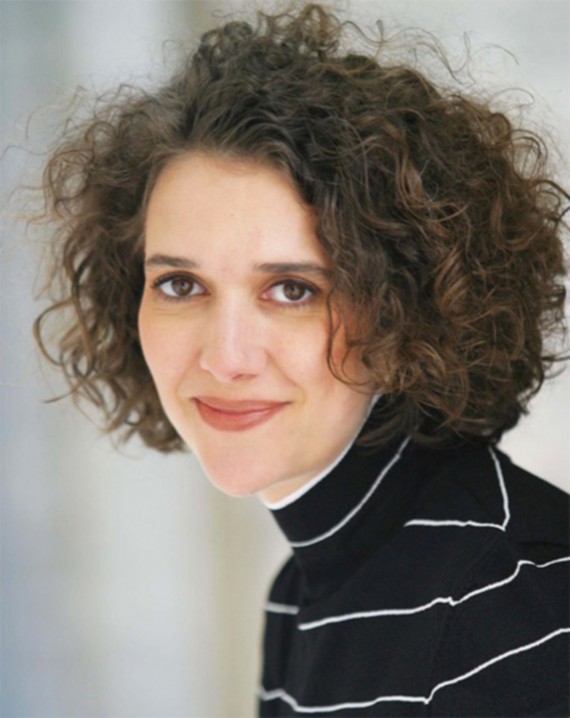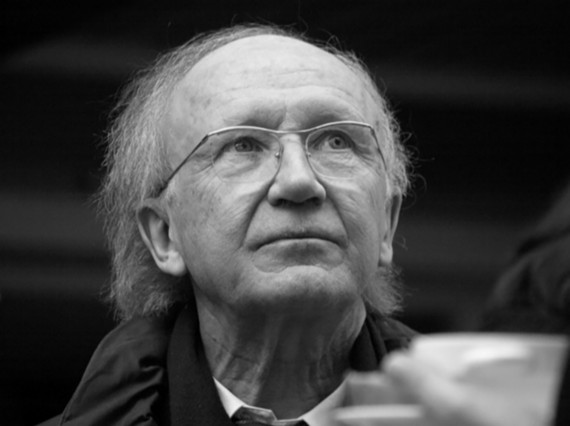Ensemble Contrechamps CH
Heinz Holliger CH
Juliane Banse DE
Parcours Heinz Holliger
Œuvres de Heinz Holliger, Bruno Maderna, Gustav Friedrichson, Robert Schumann
Mise en lumière de Matthieu Baumann
Music
Composer, conductor and oboist Heinz Holliger’s multiple talents meet the extraordinary Juliane Banse’s crystal clear soprano for a program comprising a variety of gems from the 19th and 20th centuries. Artist Matthieu Baumann will further delight the audience by lighting up the Victoria Hall with his blazing and magic projections.
Aperitif offered for the opening of Matthieu Baumann’s light installation at 6.30 pm
Heinz Holliger (born 1939)
Puneigä for soprano and ensemble (2002)
“Lately, I have become increasingly fascinated by languages that are almost extinct, archaic, and very rarely spoken. […] One could compare this approach [...] to that of Janácek who, during his walks, noted in his notebook the music of the sounds of drops of water, trees, leaves and the wind. It is this feeling of sound discovery that I also want to transmit to others, even to the youngest, to adopt the attitude of a child who learns everything by ear."
“Puneigä is the name of a place with a mystical aura in the Pumatt valley: a tiny pond which, in spring, when the sun reflects off it, looks like a very blue eye. Later in the day, when the sun has passed, all you can see is the rock. […] The word itself does not appear in the sung text: I chose it from all the poems for its slightly magical, incantatory allure.”
The work sets Anna Maria Bacher’s poems to music in a Swiss-German dialect spoken by the Walser people. “It is an archaic, medieval-like form of spoken German that has been preserved for three centuries. Even for a German speaker, it is a language that sounds almost exotic when first heard.”
Bruno Maderna (1920-1973)
Concerto n°1 for oboe and ensemble (1962)
Concertos for soloists often present an optimistic representation of the relationship between an extraordinary individual (the soloist) and the ensemble (the orchestra): the soloist, even if he or she stands apart from the collective, is nevertheless one with the orchestra, interacts with it, is sometimes supported by it and sometimes supports it, their words forming a single discourse.
What emerges in Bruno Maderna’s 1st concerto for oboe and ensemble (1962) is of a completely different nature. First of all, it isn’t obvious from the outset that the ensemble forms a collective: in the introduction, motifs pass from one instrument to another without the sounds blending. When this finally happens, the soloist remains silent. Certainly, there are still some hopes of the dream relationship between the individual and the collective: once, the oboe – with a line reminiscent of the end of the virtuoso cadenzas of the concertos of yesteryear, concluded by a trill – launches the ensemble with its energy into its most exuberant section. But most of the time, the soloist is alone, talking without any real response with simple murmurs or spreading his warmth over cold, immobile layers. Symbiosis never really happens. Without it being a suffering or an exclusion, without it being completely obvious and inevitable, what emerges here on the horizon is the idea of solitude, of the true demarcation of an individual who struggles to merge into the collective.
Gustav Friedrichson (born 1976)
LIght Without SourCe for soprano and ensemble (2018) – Premiere
At the heart of the work premiered today is a reflection on the visible and the invisible, on the images that are imprinted on the retina and on those that emerge from the darkness, on what is revealed to the eye and on what, although invisible, nevertheless transpires. The work sets to music translations of texts by the Japanese poet of the late 10th and early 11th centuries, Izumi Shikibu.
A poet of love with Buddhist aspirations, Izumi Shikibu oscillates between the sensitive and the emotional, memories and pure perception. What is invisible but nevertheless reveals itself is first of all feelings. But what questions the composer is what arises from the experience of darkness: fumbling replaces sight, space curls up to an arm’s length, and in a way sight becomes palpable. But there’s more: “Let the moon shine dimly on the edge of the mountains”, says the poet. “The question is, to whom is she saying it?” asks the composer, before continuing: “My feeling is that she is saying it to herself. The darkness, the path, the moonlight, the mountain ridge – all this is in itself. From that moment on, we see it too.”
“To study the path is to study oneself. To study oneself is to forget oneself. To forget oneself is to be enlightened by all things” said Dogen, the great Japanese Buddhist master of the 13th century.
Robert Schumann
Zwölf vierhändige Klavierstücke für kleine und grosse Kinder op. 85 (1849)
(arr. M. Kuhn, 2009)
Victoria Hall
Tickets
Full rate : CHF 20.- / Reduced rate : CHF 13.- / Special rate : CHF 10.- / Festival-goer rate : CHF 7.-
Tue 06 Sep 2022 19:30
Project by Contrechamps
Length 120' / With intermission
Ensemble Contrechamps
Conductor and principal oboe
Heinz Holliger
Soprano
Juliane Banse
Performance
Ensemble Contrechamps
Lighting design
Matthieu Baumann
Co-production
Contrechamps
Supports
Ville de Genève
Victoria Hall
Tickets
Full rate : CHF 20.- / Reduced rate : CHF 13.- / Special rate : CHF 10.- / Festival-goer rate : CHF 7.- / See rates details
Tue 06 Sep 2022 19:30






